Uncategorized
-
 Neuroscience
NeuroscienceMagnets in helmets might make football safer
The repulsive force of magnets in football helmets could slow the impact of collisions, reducing concussion danger and making the game safer.
-
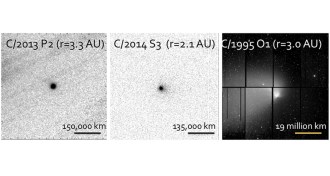 Planetary Science
Planetary ScienceTwo travelers from far beyond Neptune return home
Two bodies approaching from the edge of the solar system may have been tossed out there by Jupiter over 4 billion years ago.
-
 Environment
EnvironmentColorado deluge produced flood of drug-resistance genes
Flooding in Colorado’s South Platte River Basin washed antibiotics and drug-resistance genes into pristine waterways.
By Beth Mole -
 Astronomy
AstronomyA still mysterious solar system
Whether or not a Planet X exists, the puzzle, like a good mystery, delights the mind. But better than any novel, the puzzle’s solution has the potential to reveal something new and unexpected about our solar system.
By Eva Emerson -
 Archaeology
ArchaeologyFeedback
Readers ask questions about a study on sweeteners, how scientists recognize primitive tools and the purpose of a dinosaur's sail.
-
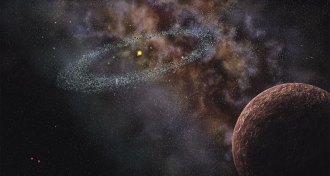 Planetary Science
Planetary ScienceA distant planet may lurk far beyond Neptune
Strange orbits in the Kuiper belt revive talk of a Planet X in the solar system.
-
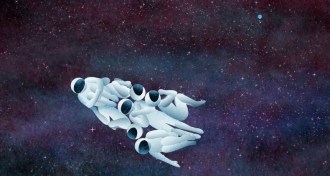 Psychology
PsychologyRigors of Mars trip make teamwork a priority
It’s going to take a different kind of mental approach to travel to Mars and back: less individuality, more collaboration and adaptability. Astronauts are being tested to prepare for such a mission.
By Bruce Bower -
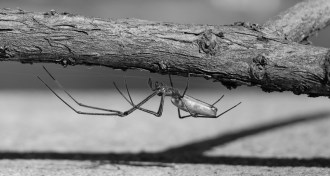 Environment
EnvironmentSpiders enlisted as pollution sensors for rivers
Hunting arachnids provide a better picture of chemical threats to food web.
By Beth Mole -
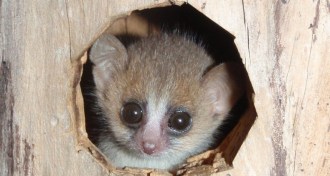 Life
LifeStudy finds lack of evidence for infanticide link to monogamy
A new study contradicts idea that the rise of infanticide among mammals drove the evolution of monogamy.
By Susan Milius -
 Quantum Physics
Quantum PhysicsMilestone algorithm runs on quantum computer
An algorithm proposed two decades ago that demonstrated the benefit of using quantum mechanics to solve certain problems has finally been run on a quantum computer.
By Andrew Grant -
 Climate
ClimateLightning strikes will surge with climate change
Climate warming could boost lightning strikes in the United States by roughly 50 percent over the next century.
-
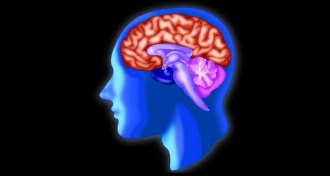 Neuroscience
NeuroscienceStopped brain clock saves memory in hamsters
Broken timekeeper in brain may explain some memory problems, hamster study suggests.
By Meghan Rosen